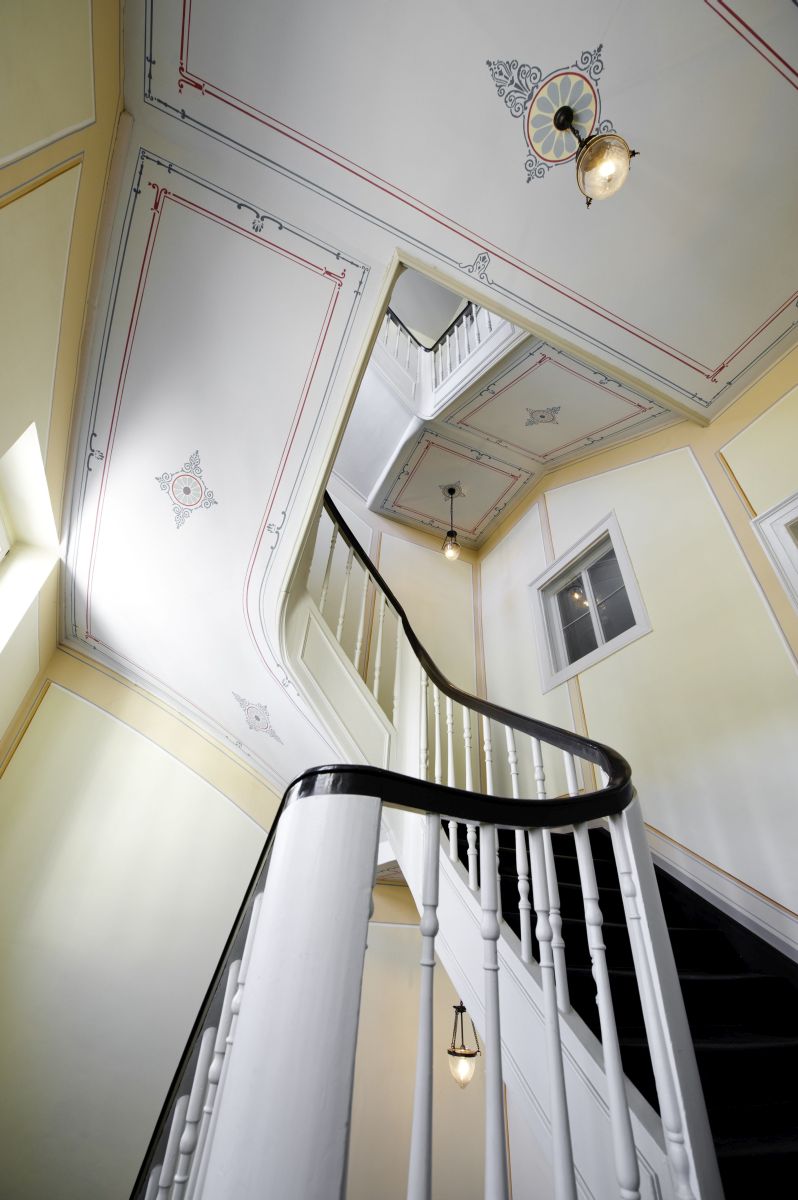Money
Visualized Feature on and with Clara & Robert Schumann
by Magdalene Melchers
Clara
“How much are we worth?”
Robert
“How much are we worth?”
Author
Since the age of nine, Clara Wieck had been giving successful concerts all over Europe. At the age of 20, she wrote in a letter to Robert Schumann:
Clara
“Everything I bought with my own money, my parents did not give me as much as a pin. They never gave me anything as a gift, not even a cherry or plum would my mother give me – “She has her own money,” they always said.”
Author
So for many years, Father Wieck profited from his daughter’s income. In the early 19th century, the basic social order meant that a man – a husband – should not live off a woman’s income, especially not his wife’s. In the Vormärz period – when industrialization was slowly starting and agrarian states increasingly transformed into industrial ones, when the lightbulb was yet to be invented, washing machines were still a figment of the imagination and the first trains connected Leipzig with the world, Clara and Robert – who had two daughters at this point – wrote to one another in their marriage diary:
Clara
“You are such an artist, in the true sense of the meaning – your entire spirit and striving is so poetic and tender, I would like to say holy, that I would like to spare you any prosaic concerns, which married life, however, makes unavoidable.”
Robert
“Now Klara is sorting her songs and several piano compositions. She always wants to forge ahead; but on her right, Marie hangs on her skirts, Elise is also a burden, and the husband sits immersed in thoughts of the Peri. Keep forging ahead then, through joy and sorrow, my Klara, and love me as you have always loved me.”
Clara
“Alas, Robert! ... All my concern is entirely about you; the thought that you should work for money is the most terrible to me, for this cannot make you happy, and yet I see no other way, if you will not let me work as well, if you cut off all my possibilities of making money.”
Robert
“Our separation has brought our oddly difficult position home to me again. Should I neglect my talent to serve you as a companion on your journey? And you, should you let your talent lie fallow because I am bound by the journal and the piano? Now, when you are young and at the height of your energy? We have found a solution. You have hired a companion; I return to our child and to my work. But what will the world say? These thoughts torture me.”
Author
For the wife and mother, being forced to make money fed the main, fundamental needs of this pianist, composer, piano teacher and virtuoso.
Writing:
Minimum level of subsistence
3 thalers per week
156 thalers per year
Net revenue of Clara Schumann’s Russian concert tour
January - May 1844
2300 thalers
Clara
“For several days, I have been plagued by indescribable melancholy – thinking you do not love me as you did – I often feel so clearly that I cannot suffice for you, and when you are gentle, I sometimes feel that this is due to the goodness of your heart, which does not wish to hurt me. In addition to this sorrow, I have bleak thoughts of the future now, which often fail to leave me for days on end and which I cannot manage to banish, so that you will have to be lenient with me at times.”
Author
Entry in the households account book, 19. February 1841:
Robert
“Drank a damnable lot in the evening. Stupid fool.”
Robert
“We spend more than we earn.”
Clara
“We spend more than we earn.”
“I, however, would like to earn, in order to give you a life which is devoted to your art alone; it pains me profoundly when I have to ask you for money and you give me what you have earned, then it often seems to me as if this robs your life of all its poetry.”
_
Author
Clara Schumann was accustomed to being an outsider – which woman at the beginning of the 19th century would earn money for her family’s living as an artist? By Robert Schumann’s side, this housewife and mother – of ultimately eight children – managed to be a successful pianist and composer as well, but the price was unspeakably high.
Robert
“Unless a hand intervenes from heaven, I have no idea how I might increase my income within a short period of time to a level I would wish for you. You know the nature of my works, you know that they are of a spiritual nature only, that they cannot be wrought, like a craft, at any time of the day.”
Clara
“Do you believe that my love is not also rhapsodic? Oh yes, I am capable of rhapsody as well, but all rhapsody ends when worries fill our hearts, and you of all people would feel brought down to earth again by them.”
“I accept that even a simple life requires much – yet I have no doubt that everything will work out. My trust is solid. Your ring reminds me daily: Faith. Love. Hope.”
Author
This interplay of love and artistic prowess continues to enrich concert life in the 21st century. Our listening enjoyment of various works reveals none of the daily struggle for recognition, which would allow them to earn a living for this large family.
Robert
“We spend more than earn.”
Clara
“We spend more than we earn.”
Robert
“How much are we worth?”
Clara
“How much are we worth?”







